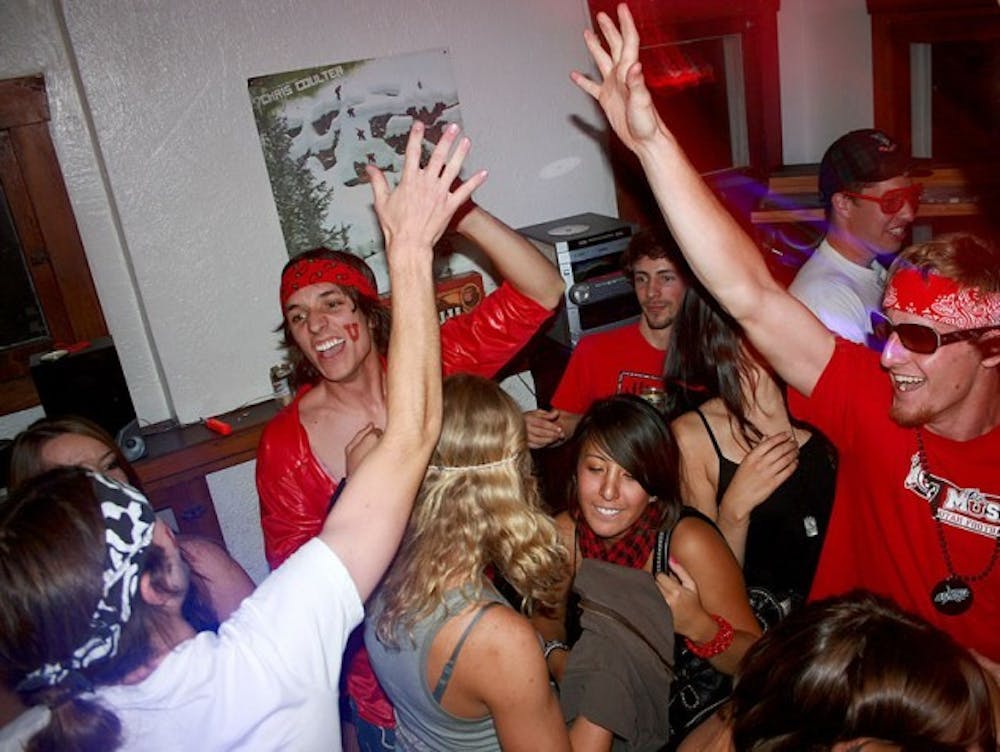Most students come to college thinking that the parties will be like the ones they see in the movies.
College parties are not all fun and games, though.
About 25 percent of college students deal with significant academic consequences related to their drinking, according to the Journal of Alcohol and Drug Education. This includes missing classes, poor exam grades, and even failing courses.
Incoming freshman and transfer students at UB complete mandatory alcohol education and sexual assault prevention education called AlcoholEDU. Despite having some knowledge of the potentially fatal risks of alcohol consumption, however, students continue to drink irresponsibly.
"We had 2,777 students participate in the national college health administration survey in the spring semester of 2010, and we asked how much they used in the last two weeks," said Amberly Panepinto, assistant director of counseling from Student Health and Wellness, at an alcohol awareness workshop held by Counseling Services. "About 49 percent of the nearly 3,000 students consumed alcohol in the last two weeks."
One reason why students consume alcohol has to do with their surroundings, especially their college community. However, an overwhelming 84 percent of students polled at UB said that they do not need to be under the influence of alcohol or drugs to enjoy themselves when they go out.
The remaining 16 percent justified their responses by saying that the parties they attend influence their decision to drink.
"[If] I go to Mojo's… I'm going to need a lot of alcohol," said Lelia Fletcher, a senior communication major. "It depends on who throws the party, where it is, what type of music is playing, and the crowd."
Michelle Olandese, outreach coordinator at UB Counseling Services, explained that not all students are of that opinion.
"I think some students think that but not all. [Some students] may think substance use is a must-have throughout one's college experience," Olandese said. "Alcohol has the ability to distort a person's perceptions. [This] can lead to significant negative consequences. [It is] important for students to assess their substance use and weigh the advantages and disadvantages of using."
It may sometimes be difficult to judge one's level of intoxication because there are numerous factors that influence alcohol's effect on an individual. Physical variables such as weight, body size, the amount of food in one's stomach, type of alcohol, and gender play a role. Other factors, such as blood alcohol content (BAC) and metabolism, also have an impact on one's drunkenness, according to Niki Keating, a clinical graduate student in counseling and school psychology.
Women may be more prone to getting drunk quickly because they weigh less than men on average, resulting in less water by volume, which leads to a higher BAC.
Female bodies also have lesser amounts of the enzyme needed to metabolize alcohol. Women contain about 20 to 30 percent less of the enzyme than men.
The national legal limit for driving in the U.S. is a BAC of 0.08 grams per deciliter of blood, but even this seemingly low amount may be detrimental.
"We used formulas to get people to the 0.08 level [for a study I did in grad school], and the people got very drunk," Panepinto said. "People lose their ability to process information and make quick decisions. Their speech slurs and their balance and motor skills become reduced."
Many social gatherings involving alcohol incorporate some form of drinking game, which may lead to more drinking at a faster rate, according to Panepinto. Furthermore, many students may be influenced to drink if they are surrounded by others who are drinking.
"If you're going to be at a party where everyone is drinking, you're going to want to be under some kind of influence to experience the same sense of fun," said Jessica Rosenberg, a sophomore psychology major. "It depends on the setting."
Setting a personal limit to the amount one drinks and avoiding shots are good ways to avoid getting too drunk, especially when the results of getting too drunk may be fatal; a student from SUNY Geneseo died of alcohol poisoning last year.
Signs that a person has consumed too much alcohol include vomiting, incoherency, shallow breathing, clammy skin, blue lips or fingertips, and unconsciousness.
Unfortunately, alcohol abuse can also lead to sexual assault.
"There's a great possibility of getting assaulted or abused when you're blacked out," Keating said. "For the record, it is considered rape if the other person is intoxicated and incapable of making a decision."
Students can go to Counseling Services at 120 Richmond or stop by Wellness Education Services at 114 Student Union for more information.
E-mail: features@ubspectrum.com





